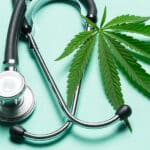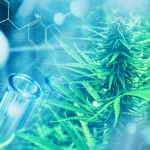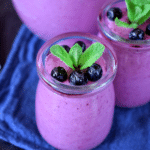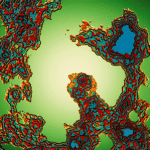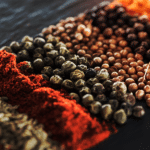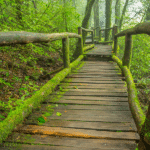Cannabis clinicians treating epileptic patients in three medical marijuana states—California, Washington and Maine—have reported their findings in a peer-reviewed article that underscores the complex challenges and unique therapeutic potential of cannabis oil concentrates. In this uncontrolled observational study involving 272 patients, some degree of seizure reduction was noted in 86 percent of cases. Ten percent (26 patients) experienced complete seizure remission.
In addition to documenting the efficacy of “artisanal” (meaning not FDA-approved) cannabis preparations for seizure reduction, the article highlights the need for flexible treatment protocols involving different cannabinoid ratios, an approach that implicitly calls into question single-molecule strategies favored by Big Pharma.
What follows are excerpts from “The current status of artisanal cannabis for the treatment of epilepsy in the United States,” by Dustin Sulak, Russell Saneto, and Bonni Goldstein in the journal Epilepsy & Behavior:
Of 272 combined patients from Washington state and California, 37 (14 percent) found cannabis ineffective at reducing seizures, 29 (17 percent) experienced a 1-25 percent reduction in seizures, 60 (18 percent) experienced a 26-50 percent reduction in seizures, 45 (17 percent) experienced a 51-75 percent reduction in seizures, 75 (28 percent) experienced a 76-99 percent reduction in seizures and 26 (10 percent) experienced a complete clinical response. Overall, adverse effects were mild and infrequent, and beneficial side effects such as increased alertness were reported. The majority of patients used cannabidiol (CBD)-enriched artisanal formulas, some with the addition of delta-9-tetrahydrocannabinol (THC) and tetrahydrocannabinolic acid (THCA).
The authors maintain that artisanal cannabis products should be considered for patients with refractory epilepsy that have a low likelihood of responding to FDA-approved anti-epileptic drugs. Moreover, a combination of cannabinoid compounds—not just CBD—may be more effective for seizure reduction.
The patient population that considers herbal cannabis as a treatment for epilepsy is heterogeneous in etiology, currently predominantly pediatric, and has seizures that are usually refractory to multiple conventional treatments… The cannabinoids may reduce seizures via numerous mechanisms of action that warrant further investigation, including THC’s reduction of glutamate exotoxicity via the CB1 receptor, CBD’s modulation of numerous non-cannabinoid receptors, and several proposed targets of THCA. Objective measurement of treatment response can be challenging, and subjective reports of the efficacy of artisanal cannabis can be strongly influenced by the placebo effect, especially in patients that have invested significant resources into securing access to these formulas.
Several other challenges are cited by the authors:
Availability of a consistent supply of the medication is frequently interrupted due to horticultural, manufacturing, and economic factors. Current market prices for artisanal cannabis preparations observed in Maine, California, and online range from 5 to 50 cents per milligram. Higher dosing ranges are financially unfeasible for many patients unless they grow and produce their own medicine, a complex process that presents many potential interruptions in treatment. Sudden loss of access to cannabinoids may result in rebound seizures… The potential for disruption of medical treatment or family structure related to child protective services and other legal agencies, even when the patient and medical provider operate within state laws, must also be carefully considered on a case-by-case basis.
There are also serious issues of quality control with respect to artisanal cannabis preparations used by epilepsy patients.
[I]naccurate product labeling is pervasive in this new and often-unregulated industry. A 2015 study of edible cannabis products available in Seattle, San Francisco, and Los Angeles found that of 75 products examined, 17 percent were accurately labeled for cannabinoid content, 23 percent were inaccurate with higher than labeled concentrations, and 60 percent contained lower than labeled concentrations… Many patients purchase and use purportedly CBD-dominant “hemp” formulas that are sold online and shipped across state and international borders. Patients are led to believe that such products are legal, even in states without medical cannabis laws, despite the fact that CBD remains classified as Schedule One. In 2015 and again in 2016, the FDA published analytical results of several commercial CBD products and issued warning letters to their manufacturers. Many products were underlabeled for CBD content, contained no CBD, or contained significant amounts of THC.
The authors reference the ongoing clinical trials of Epidiolex, a CBD isolate developed by GW Pharmaceuticals, which has been evaluated at a dosing range of 2-50 mg/kg/day. Artisanal cannabis preparations have a wider therapeutic window than Epidiolex and are safe and effective at various dosages in clinical practice.
One of the authors [Dustin Sulak] has observed anti-convulsive effects in patients at doses as low as 0.02 mg cannabinoids per kilogram per day… Ultra-low doses of cannabinoids have been shown to be physiologically active in pre-clinical models: a single application of 0.002 milligrams per kilogram of THC to mice induced long lasting activation of protective signaling in molecules in the brain….
Cannabinoids trigger biphasic responses depending on dosage. Low doses and high doses can elicit opposite effects and this should not be unexpected in clinical practice. The authors comment on the clinical implications of potential biphasic dose-response trends in the anticonvulsant of activity of THC, CBD, and other modulators of the endocannabinoid system.
The extraordinarily wide dosing range of cannabis is complicated by non-linear dose-response relationships…. Clinicians are cautioned to avoid making the simple assumption that higher doses of cannabinoids will yield stronger therapeutic effects. If previous clinical improvements begin to diminish, especially after a dosage increase, clinicians may consider dosage reduction as a potential strategy to improve efficacy.
The authors also discuss the use of tetrahydrocannabinol acid (THCA) for seizure reduction.
Delta-9-THC acid is becoming a popular treatment approach for patients with epilepsy in legal states, and is sometimes more readily available and/or affordable than CBD. THCA does not produce psychoactive effects in animals at relatively high doses, and psychoactivity has not been observed in humans. Though most THCA-dominant preparations will contain at least trace amounts of THC, THCA does not convert into THC in vivo.
In one case, THCA-rich therapy proved effective when treatment with CBD and THC failed to deliver satisfactory results. Specific terpenes, such as linalool (present in lavender and various cannabis cultivars), may also confer anticonvulsant effects.
Low-dose CBD at 0.05 mg/kg/day reportedly improved cognition, but higher doses of CBD caused an increase in myoclonic seizures. THC at 1 mg/kg/day reportedly produced a 4-day seizure-free episode, followed by recurrence of seizures. At 2 mg/kg/ day, THCA resulted in a reported overall 90 percent seizure reduction and improved tolerance to temperature fluctuations…. At one point a new formula of THCA at the same dosage resulted in notably decreased efficacy. A terpenoid analysis of the previous formula demonstrated the presence of high levels of alpha-linalool, absent in the less effective formula. Returning to a THCA formula based on the linalool-dominant chemovar improved her response.
Whereas pharmaceutical companies focus on single-molecule compounds, clinical practice indicates that medical marijuana patients with seizure disorders are more likely to benefit if they have access to a range of whole plant artisanal cannabis preparations, not just CBD.
Read the complete article below.


